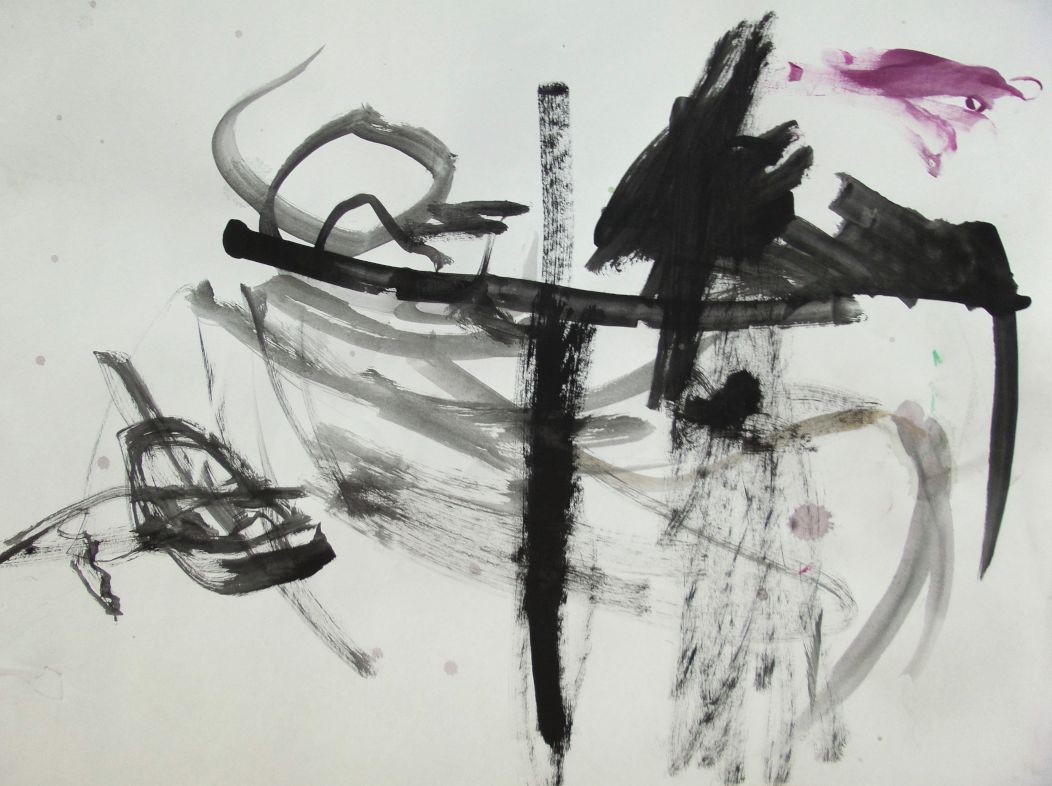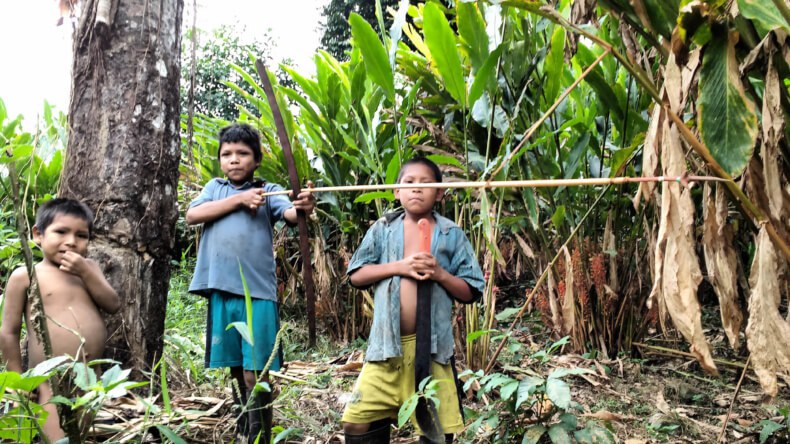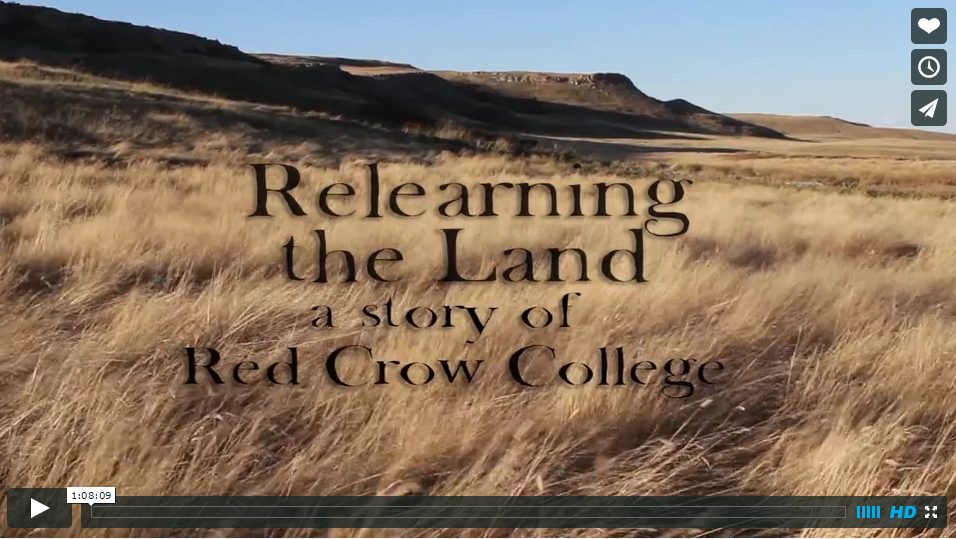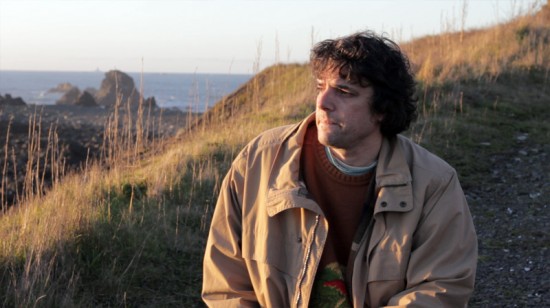It’s easy enough, some sixty years after the fact, for us to cluck our tongues at the cowardice and stupidity of those who went along with McCarthyism. It’s especially easy for liberals and academics to say that had they been alive back then, they would certainly have had the courage to stand up for discourse and to stand up for those being blacklisted. That’s partly because universities like to present themselves as bastions of free thought and discourse, where students, faculty, and guests discuss the most important issues of the day. Liberal academics especially like to present themselves as encouraging of these discussions.
Bullshit.
A new McCarthyism—complete with blacklisting—has overtaken universities, and discourse in general, and far from opposing it, liberal academics are its most active and ardent perpetrators, demanding a hegemony of thought and discourse that rivals the original.
For the past decade or so, deplatforming—the disinvitation of a speaker at the insistence of a special interest group—and blacklisting have been, to use the word of an organization that tracks the erosion of academic freedom through the increased use of deplatforming, “exploding.” Between 2002 and 2013, disinvitations from universities went up six times. And no longer are the primary blacklisters the capitalists (as was the case in the 1950s) or the pro-Israel lobby (as it has been for the past few decades). The pro-Israel lobby is still blacklisting like mad, but it’s been overtaken these days in the anti-free-speech sweepstakes by those who often consider themselves the brave heirs of Mario Savio: the liberals and leftists. And the targets of the liberals and leftists are not confined to the right (although they do certainly target right-wingers as well). Pulitzer Prize winner Chris Hedges was recently deplatformed because he speaks out against prostitution as exploitative of women. Only outcry by women forced the college to reinstate him. Writer and activist Gail Dines was recently deplatformed because she speaks out against pornography. Last year an anarchist organization called “Civil Liberties Defense Center” lent its efforts to attempts to deplatform writer and activist Lierre Keith from the University of Oregon because she’s a radical feminist. The irony of an organization with “civil liberties” in its title attempting to deplatform someone because her ideology doesn’t fit its own doesn’t escape me, and probably won’t escape anyone outside of anarchist/liberal/leftist circles. Last year, female genital mutilation survivor, child bride survivor, and feminist activist Ayaan Hirsi Ali was disinvited from receiving an honorary degree at Brandeis because she writes, from unspeakably painful experience, about how millions of women are treated under Islam.
Capitalists used the rhetoric of “communism” to blacklist. The pro-Israel lobby uses the rhetoric of “Anti-Semitism.” And the modern-day McCarthys use the rhetoric of “oppression” and “trauma.”
Things have gotten bad enough that comedians Jerry Seinfeld, Chris Rock, and Larry the Cable Guy have all said they can’t or won’t play colleges any more. As fellow-comedian Bill Maher commented, “When Chris Rock, Jerry Seinfeld, and Larry the Cable Guy say you have a stick up your ass, you don’t have to wait for the X-rays to come back. That’s right, a black, a Jew and a redneck all walk onto a college campus and they all can’t wait to leave.”
Things have gotten bad enough that this spring The Onion put out a satirical piece titled, “College Encourages Lively Exchange of Idea: Students, Faculty, Invited to Freely Express Single Viewpoint.” The article concludes with fictitious college President Kevin Abrams stating, “‘Whether it’s a discussion of a national political issue or a concern here on campus, an open forum in which one argument is uniformly reinforced is crucial for maintaining the exceptional learning environment we have cultivated here.’ Abrams told reporters that counseling resources were available for any student made uncomfortable by the viewpoint.”
Things are much worse than I’ve so far made them seem. Brown University recently held a debate about sexual assault on campus. In response to the very existence of this debate—and this time it’s not The Onion reporting, but rather The New York Times—the college set up a “safe space” where those who might be made uncomfortable, or to use the politically correct parlance, “triggered,” by the debate could remove to relax with “cookies, coloring books, bubbles, Play-Doh, calming music, pillows, blankets and a video of frolicking puppies, as well as students and staff members trained to deal with trauma.” A student gave her reason for using the safe room: “I was feeling bombarded by a lot of viewpoints that really go against my dearly and closely held beliefs.”
Silly me. I thought being challenged was a primary point of college.
Over the past few years I’ve talked to several university instructors (especially adjuncts) who’ve told me they’re afraid of their students. Not physically, as in their students killing them, but rather they fear that uttering any opinion that any of their students—either
conservative or liberal: it swings both ways—find objectionable will lead to that student complaining to the administration, after which the instructor may lose her or his classes, in effect be fired. And I just read an essay by an instructor in which he mentions an adjunct whose contract was not “renewed after students complained that he exposed them to ‘offensive’ texts written by Edward Said and Mark Twain. His response, that the texts were meant to be a little upsetting, only fueled the students’ ire and sealed his fate.”
The political correctness posse has started coming after me. I’ve been deplatformed twice this year, by liberals at Appalachian State and Oregon State Universities. The logic behind the deplatformings makes an interesting case study in the McCarthyism and circular firing squad mentality of the liberal academic class.
Part of what’s interesting to me about these deplatformings is that given what I write about—my work more or less constantly calls for revolution—I always thought it was inevitable that I’d start getting deplatformed, just as I’m always detained when I cross international borders, but I thought this deplatforming would come from the right. Not so. It’s come from the left, and, well, to use a cliché, it’s come out of left field.
To be clear, I’ve never been deplatformed because I’ve written scores of lines like, “Every morning when I wake up I ask myself whether I should write or blow up a dam.” I’ve never been deplatformed because I’ve written about the necessity of using any means necessary to stop this culture from killing the planet. I’ve never been deplatformed because I’ve written about taking down capitalism. I’ve never been deplatformed for making the satirical modest proposal that a way to stop environmental destruction is to attach remote controlled cigar cutters to the genitals of CEOs, politicians, and land managers who claim their decisions won’t harm the land (let them put their genitals where their mouths are, I say (which is something they’ve probably already tried to do)) and when their decisions harm the land, well, bzzzt, and I guarantee the next CEO, politician, or land manager won’t be quite so quick to make false promises. I’ve never been deplatformed for calling in all seriousness for Tony Hayward, ex-CEO of BP, to be tried and if found guilty executed for murdering workers in the Gulf of Mexico, and for murdering the Gulf itself. I can say all of those things, and not have the slightest fear of deplatforming.
Why was I deplatformed? In both cases because I hold the evidently politically incorrect position that women, including those who have been sexually assaulted by males, should not be forced—as in, against their will—to share their most intimate spaces with men. I’ve been deplatformed because I believe that women have the right to bathe, sleep, gather, and organize free from the presence of men.
That’s it.
Yes, I think it’s ridiculous, too.
Even though I wasn’t going to talk about this right of women at all, but rather the murder of the planet, a small group of students—in this case those who identify as transgender—at Applachian State was given veto power over whether I would speak at the university. They said that my mere presence on campus would be “an offense” to their community. Bingo: disinvitation. I was likewise deplatformed from Oregon State because, in the words of the professors who deplatformed me, my presence would “hurt the feelings” of the students who identify as transgender. Never mind, once again, that I wasn’t going to talk about them at all.
Do we all see what’s wrong with deplatforming someone because he or she may hurt someone’s feelings? Once again, silly me: I thought I’d been invited to speak at a university, not a day care center.
My recollection of the universities I have attended or taught at is that a primary purpose was to foster critical thinking and the exploration of vital issues of the day, not to protect students from anything that might “hurt their feelings.” A purpose was to help them become functioning adults in a pluralistic society. Clearly, that’s gone by the boards. And I wasn’t even going to talk about transgender issues, which means it would be my mere presence that would hurt their feelings. Do we all see what is very wrong with basing campus and regional discourse on whether someone’s feelings will be hurt, and worse, on “hurt feelings” that won’t even be based on what the blacklisted speaker was actually going to talk about? What does it mean to our society and to discourse that one group of people—anygroup of people—is allowed to hold campus and regional discourse hostage by threatening that their feelings may be hurt? Should Christians be able to deplatform Richard Dawkins because he hurts their feelings? Should atheists be able to deplatform Christians because the Christians hurt their feelings? Capitalists are killing the planet. The murder of the planet certainly hurts my feelings. So let’s deplatform all the capitalists.
The kicker on me getting deplatformed because my presence would be an “offense” to, and “hurt the feelings” of, those students who identify as transgender, is that not only was I not going to talk about them, I barely even write about them. I’ve done the math, and out of the literally millions of words I’ve written for publication, only .14 percent (yes, that’s point 14 percent) of those words have to do with their issues: two short essays, only written after my female comrades began receiving a host of rape and death threats simply for wanting to sleep, bathe, gather, and organize free from the presence of males (and you’d think that rape and death threats by men who object to women wanting space away from men would be the end of the discussion: it is, but not in the way you think: it’s the end of the discussion because the men win and the women and their allies get deplatformed). .14 percent of my work is 1.4 words per every thousand. That’s the equivalent of five words in this entire essay. Even if it were worthwhile to deplatform me over the issue at all, they’re deplatforming me because they disagree with .14 percent of my work. Hell, I disagree with a lot more than that. The cult-like demand of loyalty on the part of the new McCarthyites is so rigid that 99.86 percent agreement does not suffice.
And the essays they object to weren’t even disrespectful (which is more than I can say for my treatment of, say, capitalists), just a political and philosophical disagreement.
Part of the problem is that a terrible (and manipulative) rhetorical coup has taken place in academia, where political and philosophical disagreement have been redefined as “disrespect” and “traumatizing” and “hurting their feelings,” such that the “victims” may have to dash off to a “safe space” to play with Play-Doh and watch videos of puppies. As the (highly problematical) professor and writer Laura Kipnis puts it, “Emotional discomfort is [now] regarded as equivalent to material injury, and all injuries have to be remediated.” A fearful college instructor observed, “Hurting a student’s feelings, even in the course of instruction that is absolutely appropriate and respectful, can now get a teacher into serious trouble.”
That is a rhetorical coup because it makes discourse impossible. Those who perpetuate or support this coup have made it impossible to talk about the subject (or, clearly, any subject, including the murder of the planet), because any disagreement on any “triggering” subject is immediately labeled as a lack of acceptance and as disrespect.
To be clear, if no one is allowed to disagree with any one particular group of people—whether they be Christians or Muslims or capitalists or those who support (or oppose) Israel or those who identify as transgender, or, for that matter, members of the chess club—for fear their feelings will be hurt, then there can be no reasonable discourse. And if the purpose of a college lecture series is to make sure that no one’s feelings will be hurt, there can be no speakers. Allowing any group to hold discourse hostage to their feelings is the death knell for pluralistic society. It leads to fundamentalism. It is a fundamentalism.
It’s a classic trick used by despots and pocket despots everywhere: to ensure agreement with your position, make certain that all other positions are literally unspeakable. For the religiously minded, the epithet of choice has often been blasphemy. For the patriot, it’s traitor. For the capitalist, it’s commie. And for the liberal/leftist/anarchist, it’s oppressor.
Meet the new boss, same as the old boss.
When I was a sophomore in college, the Colorado School of Mines invited Edward Teller to speak. One of my classes required attendance. The lecture was precisely what one would expect from one of the worst human beings of the twentieth century. But some thirty-five years later, the only thing I remember of that year-long class consisted of the great classroom discussion the next day, with some students hating him and others defending him. The professors—no fans of Teller’s insanity—used this as an opportunity to teach their twenty-year-old charges to build and defend an argument. Why did you find his views so offensive? Defend your position. Convince us.
To my mind, that is the point of college.
I once asked my friend the Okanagan activist Jeannette Armstrong what she thought of an attack by another writer on Jerry Mander’s book In the Absence of the Sacred. Her answer has guided my life and career: if he didn’t like the book, he should have written his own damn book.
And that is the point of writing.
So, if you disagree with me, great! If you think women don’t have the right to gather free from the presence of males, then make your argument. If you feel Israel is not committing atrocities, then make your argument. If you feel capitalism is the most just and desirable social arrangement possible and that communism is the devil’s handiwork, then make your argument. In each case make the best argument you can. Show that your position is correct. Make your argument so sound that no sane person could disagree with you (and lots of people—sane or otherwise—will still disagree with you: that’s the fucking point of living in a pluralistic society). And when somebody doesn’t agree with you, don’t fucking whine that your feelings are hurt or that you’re offended by an opinion different than your own, but instead use that disagreement to hone your own arguments for future disagreement. Or change your perspective based on that disagreement.
That is the point of college.
We’re not all going to get along. But no one is saying you have to invite every speaker into your home. No one is saying you have to accept them into your internet- or face-to-face-discussion groups. No one is saying you have to like them. No one is saying you have to listen to them. Hell, no one is even saying you have to acknowledge their existence. But if you fear a certain discussion or lecture is going to traumatize you such that you need to go blow bubbles and watch videos of puppies, then maybe you should just not attend that discussion or lecture, and later on maybe you should discuss those feelings with a therapist. Don’t project your triggers onto your fellow students. Don’t deprive everyone else of something because you object or because it might trigger you. It is not everyone else’s—or the world’s—responsibility to never make you uncomfortable.
That’s the point of living in a pluralistic society.
I blame society for this mess. Every indicator is that people are becoming significantly more narcissistic and less empathetic: as Scientific American reported back in 2010, “A study of 14,000 college students found that today’s young people are 40 percent less empathetic than college kids from 30 years ago,” and noted that “the sharpest drop in empathy occurred in the last nine years.” The article reports that “today’s students are less likely to agree with statements like, ‘I sometimes try to understand my friends better by imagining how things look from their perspective’ and ‘I often have tender, concerned feelings for people less fortunate than me [sic].’” So it should not come as a surprise that these students demand and expect that public discourse be formed so as to not “hurt their feelings.” Pretty much everything in this society—from capitalism to consumerism to incessant advertising and corporate culture to the selfish gene theory to neoliberalism to postmodernism to the superficiality of Internet culture—reinforces this narcissism. How many decades ago was “The Me Decade”? And how much worse has it become since then? Well, about 40 percent.
I also blame liberals/leftists/anarchists, who are in some ways merely replicating the Stanford Prison Experiment, in that having gained some power in the Academy, they’re using that power the same way that capitalists or anybody else who gains power so often does, by denying voice to anyone who disagrees with them.
And I blame the groundlessness of postmodernism, with its assertion that meaning is not inherent in anything, that there are no truths, and that each person’s perception of reality is equally valid. As well as destroying class consciousness—which is one reason modern blacklisting is often based on claims of how some speaker will supposedly hurt or trigger the individual, rather than emphasizing harm or gain to society as a whole—postmodernism has led to much of the insanity we’re discussing. As philosopher Daniel Dennett commented, “Postmodernism, the school of ‘thought’ that proclaimed ‘There are no truths, only interpretations’ has largely played itself out in absurdity, but it has left behind a generation of academics in the humanities disabled by their distrust of the very idea of truth and their disrespect for evidence, settling for ‘conversations’ in which nobody is wrong and nothing can be confirmed, only asserted with whatever style you can muster.” And if all you’ve got is rhetoric, that is, “interpretations” and “assertions,” as opposed to, say, factual evidence, then the only way, or at least the most tempting way, to conclusively win an argument is through rhetorical manipulations. If you can’t say, “Your opinion is wrong, and here are facts showing your opinion is wrong,” you’re pretty much stuck with, “Your opinion is oppressing me, triggering me, hurting my feelings.” And that’s precisely what we see. And of course we can’t argue back, in part because nobody can verify or falsify your feelings, and in part because by then we’ve already been deplatformed.
Among other problems, this is all very bad thinking.
And finally I blame the professors themselves. The word education comes from the root e-ducere, and means “to lead forth” or “draw out.” Originally it was a Greek midwife’s term meaning “to be present at the birth of.” The implication is that the educator is an adult, who is helping to give birth to the student’s capacity for critical thinking, and to the student’s adult form. This is not accomplished by making certain that no one be allowed to speak who might “hurt their feelings.” This is not accomplished by protecting students from “viewpoints that go against . . . dearly and closely held beliefs.” It’s accomplished by challenging students at every moment to be better thinkers, challenging them to question their own assumptions, challenging them to defend their positions with far more intellectual rigor than merely stating, “That hurt my feelings.”
I blame the professors also for not standing up for discourse itself. If you’re going to be a professor, if you’re going to be a midwife present at the birth of the critical minds of your students, then defending free and open discourse should be a calling and a duty. It should be a passion. It takes no courage whatsoever to fail to stand up to attempts to destroy discourse, whether the blacklisters are capitalists, the pro-Israel lobby, leftists, liberals, or students who perceive themselves (and who are evidently perceived by professors) as so fragile their feelings will be hurt by dissenting opinions, their feelings which must be protected no matter the cost to society and to discourse. This failure of courage does great injury to everyone, including the students perceived as needing protection from disagreement. I wish the professors understood that their job is to be educators, not baby-sitters (and codependent baby-sitters, at that). I wish the professors were defenders of discourse.










